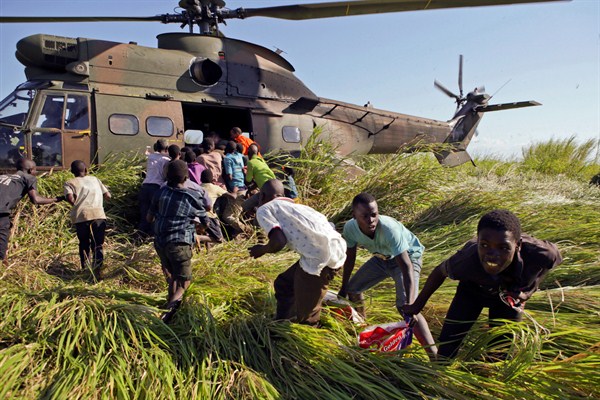Two weeks after Cyclone Idai made landfall in Mozambique, unleashing heavy rain and winds of more than 100 mph on the port city of Beira, the scale and precise nature of the devastation is still coming into focus. Receding waters have allowed more stranded people to receive aid, while also revealing more fatalities; as of Wednesday, the official death toll stood at 468 in Mozambique, along with 185 killed in Zimbabwe and 60 in Malawi.
Hundreds of thousands of people in southern Africa have been displaced, and the United Nations estimates that nearly 2 million people have been affected by the disaster in Mozambique alone. Beyond the immediate dangers posed by flooding, there are longer-term consequences to reckon with: The first cases of cholera were confirmed this week in Beira, and officials are expecting more. In addition, the World Food Program has said that the cyclone, which struck right before harvest time, wiped out a year’s worth of crops in broad swaths of the region. As he appealed for support from the international community on Tuesday, U.N. Secretary-General Antonio Guterres described Idai as “one of the worst weather-related catastrophes in the history of Africa.”
Idai would have been destructive wherever it landed. But Mozambique, which has been hit hardest by the cyclone, is especially vulnerable to the kind of knock-on effects that will be felt long after the world’s attention turns to the next crisis. “There are going to be huge problems for years,” says Aslak Jangard Orre, a political scientist and senior researcher at Chr. Michelsen Institute in Norway who studies Mozambique and has lived in Beira. “People are going to be set back health-wise and education-wise and economically in so many ways that are going to really prolong the disaster and suffering.”

